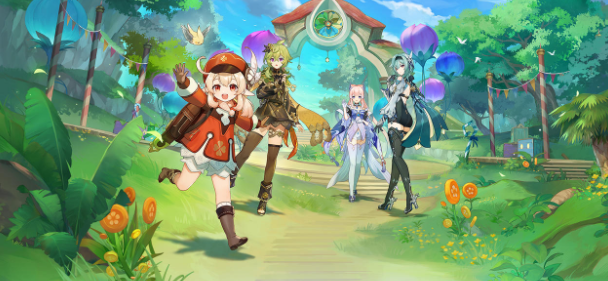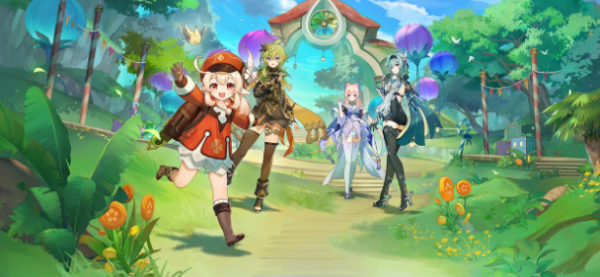Why Shakespeare Is Still Relevant Today
It’s August in Ashland, and the air coming from the open lobby windows is thick with smoke from the nearby fires. The room is overflowing with mindless chatter useful only to fill the time before we’re let into the theater. I straighten my dress and run my fingers through my hair as I wait. After anxiously standing around for the better part of an hour, I begin to shift my weight from side to side as they open the doors. As the line starts to move, my heartbeat quickens. I take a program as I pass through the doors and hurry to find a seat. After another fifteen minutes of waiting, the lights dim and the chatter around me ceases in order to hear the voices coming from the stage, voices describing “two households, both alike in dignity.”
The Oregon Shakespeare Festival began 83 years ago in Ashland and has only grown in size. Meant to showcase and celebrate William Shakespeare’s iconic works, the festival now puts on eleven plays, some of them Shakespeare and some of them acclaimed works by other playwrights. The festival is also one of the biggest tourist attractions in Southern Oregon, attracting over 300,000 people yearly for almost 800 performances. The continual existence of this festival shows is just one example of how Shakespeare is still celebrated and respected 400 years after his death.
However, not all people agree with OSF on the importance of studying and preserving Shakespeare’s works. Many people think that studying Shakespeare is useless. The language is confusing, the characters have weird names, and most of us don’t find ourselves in love with someone who should be our archenemy like Romeo and Juliet were. However, once you look beyond the veil of arranged marriages and duels to the death, you find characters with feelings and experiences that are not only relevant but integral to our current society, as well as themes that are still relevant today.
Take Romeo and Juliet, for example. Arguably Shakespeare’s most famous work, and one of the most debated ones, this tragedy shows the power of love and the importance of accepting the love between two people we might not think belong together, something that is incredibly relevant to this day. However, this isn’t necessarily unique to Shakespeare. High Schoolers study plenty of other classic novels with themes that still apply today. So what does make Shakespeare so unique?
One of Forest Grove High School’s English teachers, Ms. Restuccia, is teaching Senior Shakespeare Seminar this year and says that what makes Shakespeare unique is how he “played with ideas we’re still wondering about today.” Throughout his works, we see recurring instances where Shakespeare took social standards and flipped them around to fit his purpose. One of the most prominent examples of this is his comedy Twelfth Night. Twelfth Night tells the story of a woman, Viola, who disguises herself as a man in order to be able to work for the Duke Orsino, who is madly in love with the Lady Olivia and is desperately trying to win her hand. The situation quickly escalates when Olivia falls for Viola, who she believes to be a man, while Viola falls for Orsino, who also believes her to be a man. While the three eventually find love, Viola and Orsino with each other and Olivia with Viola’s twin brother, the whole play twists around the idea of love surpassing gender, something that is still grappled with and debated today.
Shakespeare was also a visionary when it came to language, inventing new words that we still use today and using existing words in new ways. Ms. Restuccia described Shakespeare as “complex thematically and linguistically,” which I think fits his style well. While incredibly creative with his characters and ahead of his time when it came to social issues, his use of language is something that almost no other author or playwright can come close to rivaling. With the use of iambic pentameter, Shakespeare found a way of making his audience feel the emotions the actors were feeling. In moments where he broke from iambic pentameter, it feels wrong, creating an effective way of showing the audience that a moment is important.
Being a playwright also makes his writing so much different than that of other renowned authors. Seeing a story on stage has the power to make you feel it so much more. As Ms. Restuccia said it, “[Shakespeare is] brilliant at pairing lasting themes with language that makes us feel what’s happening.” Especially when you get up and read Shakespeare, the words have a powerful way of conveying the story to you in a way no other literature from his time can.
Thus, we can see that Shakespeare is not only still relevant, but helped start society on the path towards who and what we are now. Through playing with language and inventing words as well as playing with gender roles and power hierarchies, Shakespeare introduced many ideas necessary to lead society to what it is now. Without his influence on both literature and life, our world would likely look a lot different today.

Lizzie Lohrer is a Senior at FGHS and is proud to be returning as the Editor in Chief of The Advocate this year. She is very passionate about writing,...




















































































































































